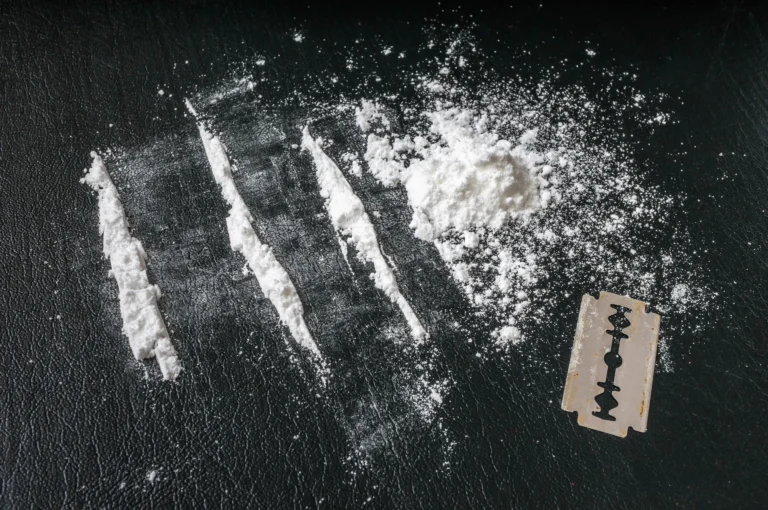Opiate addiction, a pervasive global crisis, poses severe health and socioeconomic challenges. However, advancements in comprehensive opiate addiction help programs are revolutionizing the path to recovery. These programs integrate medical treatments, psychological counseling, and holistic therapies to provide a safe detoxification process and equip individuals with robust relapse prevention tools.
The shift towards long-term recovery strategies has transformed countless lives, fostering sustainable sobriety. The ensuing positive societal shift in the narrative surrounding opiate addiction serves as a beacon of hope, instilling confidence in those battling addiction. Therefore, these transformative approaches to opiate addiction help are not merely treating, but changing lives.
Understanding Opiate Addiction
Opiate addiction, a complex brain disease, often starts with the misuse of prescription painkillers and manifests in uncontrollable, compulsive drug seeking and use, despite harmful consequences. This relentless pursuit of opiates stems from a deep-seated need to alleviate physical and psychological pain, leading to a cycle of dependency that is hard to break without professional opiate addiction help.
Understanding opiate addiction is crucial to breaking this cycle. The brain’s reward system is fundamentally altered by opiate misuse, creating a strong psychological dependence. The individual’s life begins to revolve around the drug, often causing significant personal, social, and occupational disruptions.
Fortunately, there are opiate treatment centers available that specialize in helping people overcome this debilitating disease. These centers provide a comprehensive approach to recovery, including medical supervision for opiate detox, a critical first step in the treatment process. This is followed by therapeutic interventions tailored to the individual’s unique needs, helping them rebuild their lives free from opiates.
Advances in Treatment Approaches
The advent of innovative treatment approaches has significantly improved the prospects for individuals grappling with opiate addiction. These advances in opioid treatment are revolutionizing the field of addiction therapy and providing much-needed relief to those struggling with dependency issues.
One such advancement is the increased availability of Medication-Assisted Treatment (MAT). This approach involves the use of FDA-approved medications in combination with counseling and behavioral therapies. This comprehensive opiate treatment approach has shown to not only help in managing withdrawal symptoms but also in reducing the risk of relapse.
Further, the advent of telemedicine has made opiate addiction treatment more accessible to those living in remote areas or with limited mobility. This has proven particularly beneficial during times of social distancing and restricted travel.
Ongoing research continues to shed light on the neurobiology of addiction, paving the way for the development of more effective and targeted therapies. Opioid help is now more available and effective than ever before, reflecting the growing understanding and empathy towards those in the grips of addiction.
The Role of Therapeutic Counseling
Drawing on the benefits of advanced treatment methods, therapeutic counseling plays an instrumental role in opiate addiction recovery by providing emotional support and teaching coping strategies to those battling addiction. The healing process is multifaceted, requiring not only medical intervention but also psychological and emotional assistance.
Therapeutic counseling, often employed as an integral part of a comprehensive treatment plan, aids in addressing the underlying issues that contribute to addiction, such as trauma, stress, and mental health disorders. This form of therapy helps individuals understand and change their thought patterns that lead to harmful behaviors and dependence.
It assists in fostering resilience and self-esteem, crucial elements for recovery and relapse prevention. The bond between the therapist and the patient also serves as a pillar of support, facilitating open communication, validation, and empathy, all of which are essential for the healing journey.
The transformative power of therapeutic counseling lies in its ability to provide tools for self-discovery and personal growth. It promotes not just sobriety, but also a healthier, more constructive lifestyle, paving the way for individuals to regain control of their lives and break free from the chains of addiction.
The Role of Community Support
Equally important in the recovery process is community support, providing an additional layer of assistance and motivation for individuals grappling with opiate addiction. Community support networks can come in various forms, from family and friends to support groups and local organizations, all contributing significantly to the recovery journey.
These networks offer a safe environment in which individuals can share their experiences, learn from others, and build a sense of belonging. This shared experience can be a powerful tool in overcoming feelings of isolation and shame often associated with addiction. Furthermore, community support often fosters accountability, which is vital for maintaining sobriety.
Community resources also play a pivotal role. Local organizations often offer educational programs, access to medical care, and employment assistance. These services not only aid in the physical recovery from addiction, but also in the rebuilding of lives affected by it.
In a society where the stigma of addiction can be overwhelming, community support is a beacon of hope. It provides the understanding, compassion, and resources needed for individuals to reclaim their lives from opiate addiction. Community support is not just beneficial, it’s essential in the journey towards recovery.
Final Thoughts
Opiate addiction help programs are transforming the addiction recovery journey. Through a combination of medical treatment, therapeutic counseling, and community support, individuals are not only detoxifying safely but also learning to maintain sobriety.
These comprehensive strategies are fostering long-term recovery and reducing relapse rates, inspiring a positive shift in the societal narrative surrounding opiate addiction. This changing narrative instills hope and confidence in those still facing the challenges of addiction.
At Altitude Recovery, we’re committed to lifting you from the depths of substance use challenges to the heights of recovery and resilience. Our expert team provides personalized, evidence-based treatment services designed to support your distinct path towards healing. Reach out to us for the understanding and compassionate care you deserve on your journey to wellness.
Frequently Asked Questions
How Does the Process of Transitioning Back to Daily Life Work After Completing an Opiate Addiction Program?
Transitioning back to daily life after completing an opiate addiction program involves a comprehensive aftercare plan. This typically includes ongoing therapy, support group participation, and regular check-ins with professionals. The goal is to maintain sobriety, manage triggers, and reintegrate into society. It’s a challenging, yet crucial process that demands commitment and resilience.
How Is the Success of an Opiate Addiction Program Measured or Defined?
The success of an opiate addiction program is typically measured by several key indicators. These include sustained abstinence from drug use, improvements in physical and mental health, reduced criminal behavior, and enhanced employment or educational status. Other factors, such as improved family relationships and social functioning, may also be considered. Each individual’s progress is unique and success is ultimately defined by their ability to lead a healthier, drug-free life.
What Kind of Medical Assistance or Supervision Is Provided During an Opiate Addiction Program?
In an opiate addiction program, medical assistance is paramount. It often includes medically supervised detoxification, where medications like methadone or buprenorphine are administered to manage withdrawal symptoms. Regular health check-ups, psychiatric care, and counseling sessions are provided. The aim is to offer a comprehensive treatment approach that combines medical care with psychological support, enabling individuals to overcome addiction and improve their overall wellbeing.





